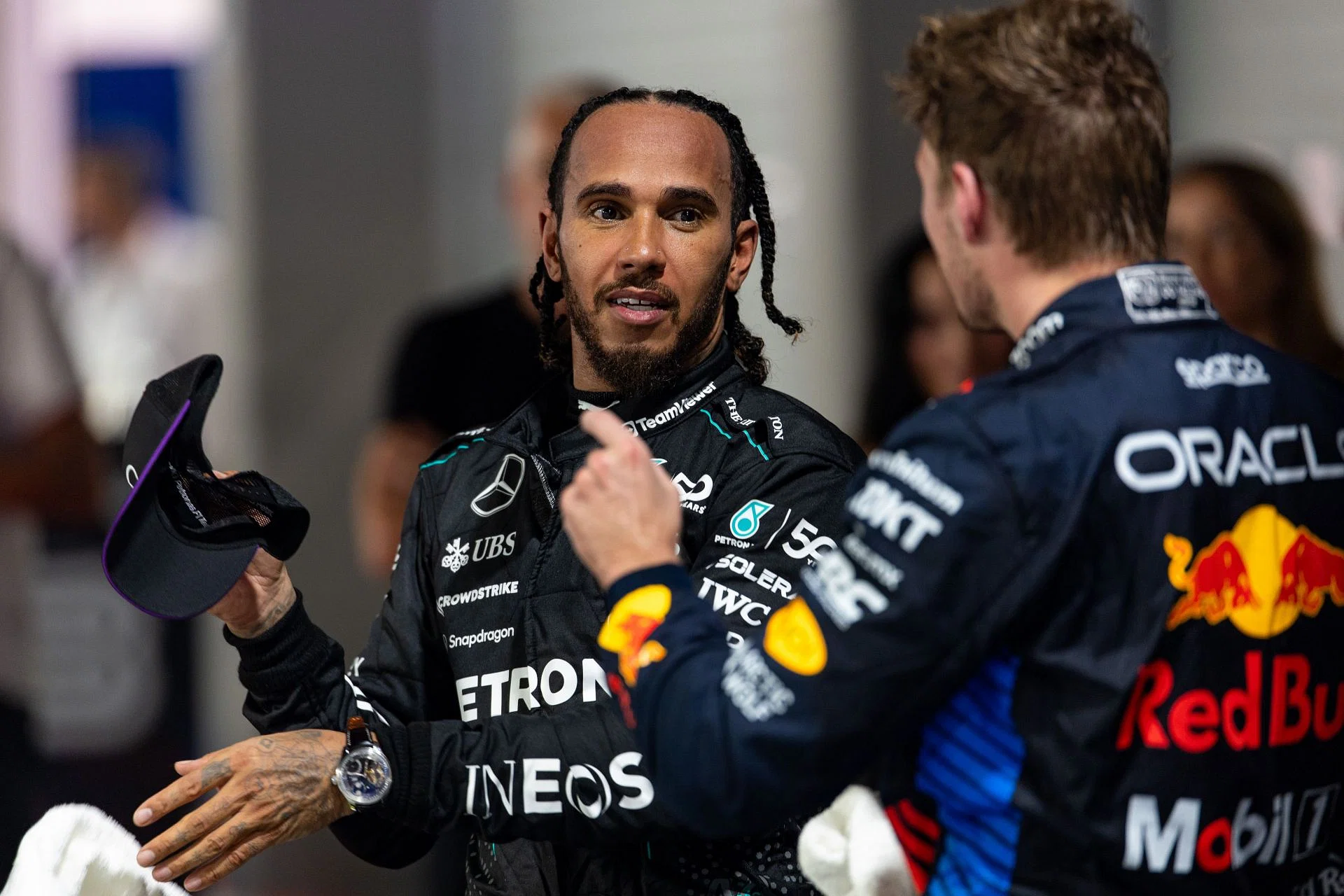The world of Formula 1 is often a place of high tension, fierce rivalries, and relentless pressure.
However, recent comments from a former Dutch driver regarding Lewis Hamilton’s mental health have ignited a firestorm in the F1 community.

In a sport where athletes are increasingly vocal about the importance of mental well-being, dismissive remarks towards a seven-time world champion like Hamilton raise concerns about the broader culture surrounding mental health in motorsport.
Amid Max Verstappen’s dominance in the 2024 Formula 1 season, a former Dutch driver, whose name has not been officially revealed, has taken the opportunity to praise the young Dutch champion while making controversial remarks about Hamilton. The driver, while applauding Verstappen’s consistency and dominance, seemed to belittle the mental health struggles Hamilton has openly discussed in recent years.
According to reports, the former driver questioned Hamilton’s focus and resolve, implying that his mental health discussions were exaggerated or irrelevant. Instead, he highlighted Verstappen’s mental toughness as the key factor separating the two drivers, painting the 26-year-old as someone immune to the psychological pressures that may have affected Hamilton during his recent seasons
Hamilton has been open about the mental and emotional toll his F1 career has taken on him. With the pressures of constant travel, high-stakes racing, and the scrutiny that comes with being one of the most successful athletes in the world, the Brit has spoken candidly about the importance of mental health. He has shared how certain moments, including losses on and off the track, have impacted his emotional well-being. Hamilton’s vulnerability has been praised by many in the sports world as a step toward normalizing conversations about mental health among elite athletes.
His stance on mental health has also influenced a broader cultural shift in Formula 1. Younger drivers have started to follow his lead, opening up about the stresses they face, thus contributing to an evolving narrative in motorsport—one that goes beyond physical performance and emphasizes mental fortitude as equally crucial.
Max Verstappen’s rise to the top of Formula 1 has been nothing short of spectacular. With three consecutive World Championships to his name and a near-flawless 2024 season, he has proven himself to be the man to beat on the grid. Many pundits and fans have drawn comparisons between Verstappen and Hamilton, pointing to their different approaches to racing and handling the pressures of the sport.
However, it’s important to recognize that each athlete’s journey is unique. While Verstappen has excelled in maintaining a level of focus and aggression that some have likened to “tunnel vision,” it does not mean that mental health concerns are exclusive to other drivers like Hamilton. Comparing their mental approaches in a way that trivializes the challenges of one driver in favor of another is a reductive way of understanding what it takes to compete at the highest level.
The comments made by the Dutch driver reflect an outdated perspective on mental health, particularly in high-pressure environments like Formula 1. It’s a narrative that many in the sporting world are working to change. Athletes, regardless of their success or perceived strength, are susceptible to mental health struggles. For Hamilton, navigating the complexities of mental wellness while maintaining his legacy as one of the greatest F1 drivers in history is a testament to his resilience, not a sign of weakness.
As fans, media, and former athletes weigh in on the Hamilton-Verstappen rivalry, it’s crucial to remember that praising one driver should not come at the expense of another’s personal challenges. Acknowledging the importance of mental health in sports is not just about supporting individual athletes like Hamilton but also about creating an environment where mental wellness is treated with the same respect as physical health.
While Max Verstappen continues to dominate on the track and receive well-deserved praise, Lewis Hamilton’s openness about his mental health struggles should not be dismissed or trivialized. Both drivers bring unique qualities to the sport, and both deserve recognition for their contributions to Formula 1. As the conversation about mental health in sports continues to grow, it is essential for the F1 community to embrace a more compassionate and supportive approach, ensuring that athletes are valued for their mental resilience as much as their physical prowess.
